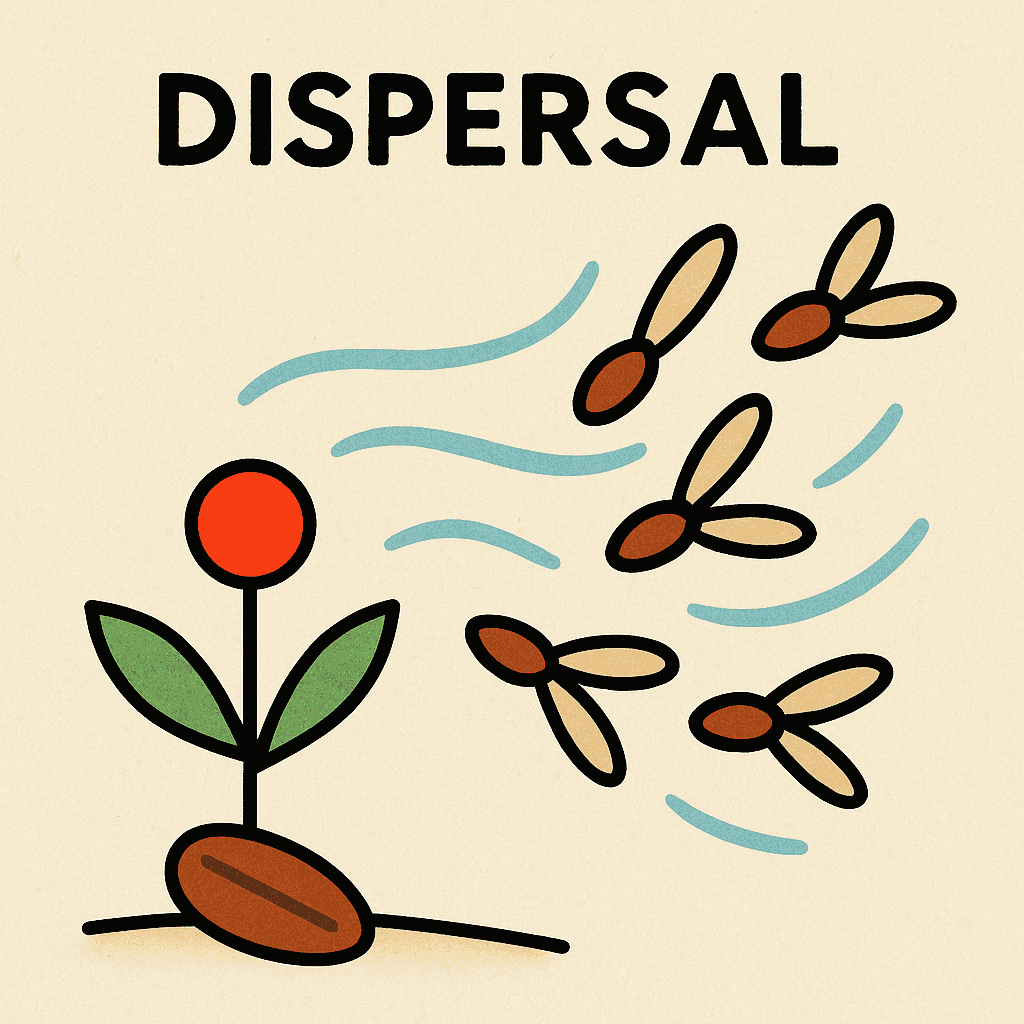Meaning
Dispersal means the act or process of spreading things or people over a wide area. It often refers to the movement of individuals, particles, or objects away from a central point.
Grammar and Usage
-
Part of speech: Noun
-
Verb form: disperse
-
Typical structures:
- the dispersal of seeds/pollution/people
- wildlife dispersal
- dispersal area or zone
Used both in scientific and general contexts:
- In biology: movement of species or seeds.
- In society: the breaking up of a crowd or group.
Common Phrases
- the dispersal of seeds – the way seeds are spread from parent plants.
- crowd dispersal – when police or other authorities cause a crowd to move away.
- dispersal area – an area designated for scattering or evacuation.
Collocations
- seed dispersal
- crowd dispersal
- pollutant dispersal
- rapid dispersal
- natural dispersal
- air dispersal
Examples
- The dispersal of seeds allows plants to grow in new locations.
- Police managed the dispersal of the crowd after the concert.
- Wind plays a key role in the dispersal of pollen.
- The dispersal of information on social media can be very rapid.
- Wildlife dispersal patterns change with habitat loss.
- The dispersal of pollutants was measured by environmental scientists.
- Emergency teams ensured the safe dispersal of people from the danger zone.
- Some animals assist in the dispersal of plant seeds by eating fruits.
Synonyms or Related
- distribution
- scattering
- diffusion
- spread
- dissemination
Antonym
- concentration
- gathering
- collection
